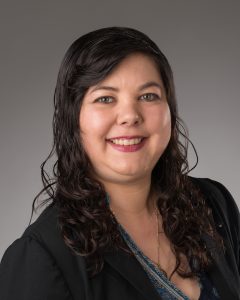
Greetings and Salutations!
As I emerge from my going up for tenure silence it seems appropriate to write a Tales from the Tenure Track post to announce that as of July 1, 2016 I am a tenured Associate Professor at the University of Nebraska-Lincoln.
I would like to take this opportunity to thank Mark Puente and the ARL IRDW scholarship program, Beth McNeil, Elaine Westbrooks, Joan Giesecke, Tracy Bicknell-Holmes, Charlene Maxey-Harris, and the UNL Office of Research and Economic Development whose support and guidance (even when I disagreed and went my own way) helped shape my career in libraries. While there are dozens more people I would like to thank publicly, I doubt you want to read a whole page of acknowledgements.
Like many who are granted tenure and promotion I have a profound sense of relief and gratitude. Coming from a background in industry where I was employed at will it was hard to relate to the P&T process. I was used to be judged on the merit of my work which was constantly being evaluated and found the peer-review process confusing and disconcerting. I am also grateful for the protection of academic freedom to speak my mind. My friends are probably laughing, but as open as I am, there were times when I was not comfortable expressing my thoughts without that protection.
What have I learned?
Staff are awesome! If you aren’t talking to staff on a regular basis you are missing out on a great resource. Many of them have been around for years and can share great insights into the organization or why something is done a certain way. They are great people to ask if you have a question or don’t understand something, and really interesting and engaging as individuals too.
Collaboration is hard! Be willing to take the lead. Self-awareness, emotional intelligence, clear communication about deadlines and expectations, and a willingness to compromise are key. Less more intense meetings can move a project along faster and people (in my experience) are more likely to participate if the project is for a shorter amount of time. It’s also important to realize that your priorities do not necessarily match your collaborators and that life happens to us all. Creating an ambitious timeline and allowing for the possibility of setbacks allows work to be completed in a timely fashion and sometimes you will be done early giving you more time to work on other projects.
You can never attend too many grant writing workshops and seminars! Requirements and best practices are always being updated, attending 1-2 sessions a year will help keep you in the mindset and ensure you are not blindsided by changes as they happen. As a bonus, the same writing techniques used in grant proposals can be used to improve your research papers and conference proposals.
Talk with your colleagues! Even if you are not collaborating it’s important to maintain relationships with your peers. Whether you are brainstorming or catching up on each others projects, the more you know about each other the easier it is to see where your interests and skills intersect. It will also help you with referrals because you will have a better understanding of when and who to refer.
Thanks to all of my colleagues, collaborators, mentors and mentees, friends and family for your insight, support, and willingness to have fun while we travel this road we call life!
